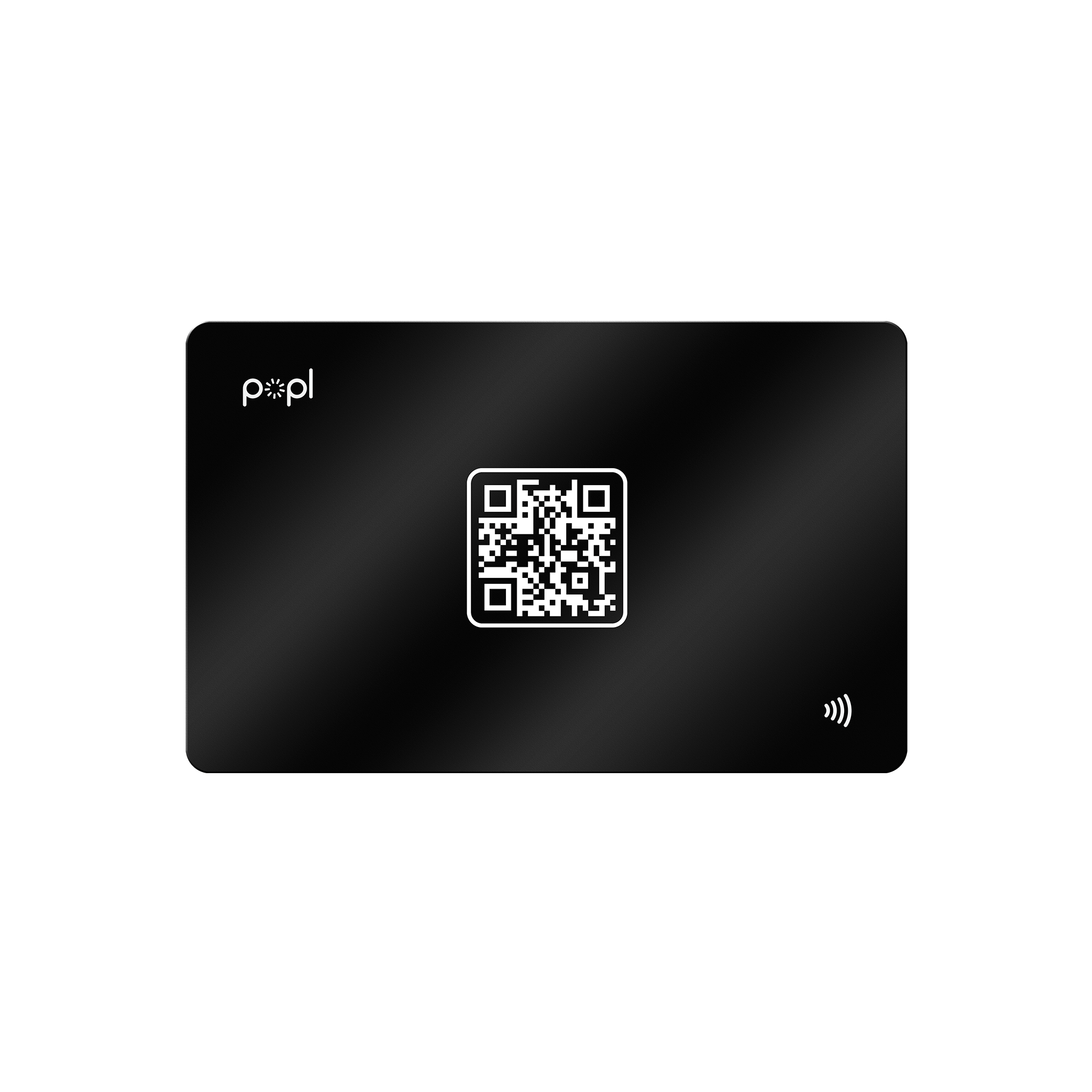The past few years have brought about a seismic shift in the career landscapes. Thanks to technology, the global market is more connected than ever, creating a massive shift in how businesses operate. The future of work will continue to change at breakneck speed, and adaptability is key to staying ahead of the curve.
Understanding this, Popl is committed to offering innovative solutions like digital business cards that revolutionize how we network and connect in this rapidly changing career landscape.

Embracing the Digital Revolution
The digital revolution has brought about significant changes in how businesses operate and interact with their customers and clients. Traditional paper business cards are being replaced by digital counterparts, primarily due to their convenience and sustainability.
Adopting digital solutions is essential for businesses looking to remain relevant in the future work landscape. Popl's digital business cards offer an efficient, customizable, and eco-friendly way to share professional contact information. A simple tap or scan can transfer all your contact details, social profiles, and more, offering a seamless networking experience.
For professionals in dynamic sectors like real estate, such tools are vital. Networking for realtors has evolved, and a digital business card is becoming the norm.
The Power of Collaboration and Teamwork
As the business environment continues to evolve, collaboration and teamwork are more critical than ever. Popl understands the importance of team cohesion and offers solutions like Popl Teams that help foster collaboration and manage sales efficiently.
Popl Teams is a lead management and sales enablement tool that makes it easy for teams to share contacts, track leads, and optimize their sales process. Using Popl Teams, businesses can streamline their workflow and ensure that every team member is on the same page, improving overall productivity.
Preparing for the Future of Work
The future of work will demand more flexibility, digital savviness, and continuous learning. Employees and employers alike will need to embrace these changes to thrive in the modern career landscape. Here are some of the key strategies:
Embrace Lifelong Learning
Lifelong learning will be a crucial aspect of professional development in the future work landscape. Stay ahead by continuously learning and adapting to new technologies and industry trends. Continuous learning will be an integral part of the future of work, enabling professionals to keep up with the rapid changes in their respective fields.
Additionally, with the rise of data-driven decision-making in various fields, acquiring data analysis skills has become incredibly valuable. Platforms offering online courses for data analysis provide a flexible way for professionals to upskill themselves efficiently.
Harness the Power of Social Selling
Social selling is becoming an increasingly important sales strategy. By leveraging social media and digital tools, sales professionals can build stronger relationships with their customers and drive sales growth. Digital business cards from Popl can amplify your social selling efforts by easily sharing your social profiles and other relevant information.
Improve Time Management
As work from home and flexible working hours become more prevalent, effective time management will be crucial. Popl's digital business cards and Popl Teams can help streamline communication and coordination, saving time and improving productivity.
The future of work is evolving rapidly, and adaptability will be the key to navigating this changing landscape. By embracing digital solutions like Popl's digital business cards and Popl Teams, you can stay ahead of the curve and thrive in the modern career landscape.
FAQ | Frequently Asked Questions
What are some of the key trends that are shaping the future of work?
The rise of automation and artificial intelligence is leading to job displacement in some industries, while creating new opportunities in others. For example, automation is replacing jobs in manufacturing and customer service, while artificial intelligence is creating new jobs in data science and machine learning.
What are some of the challenges that workers face in the future of work?
Workers need to be prepared to learn new skills and adapt to change in order to stay competitive. They may also need to be willing to relocate for jobs, as the workplace becomes more globalized. Additionally, workers may need to be comfortable working independently and collaborating with others from different cultures.
What are some of the things that workers can do to prepare for the future of work?
Workers can stay up-to-date on the latest trends in technology and business by reading industry publications, attending conferences, and taking online courses. They can also invest in their education and training by getting a degree or certificate in a new field. Additionally, workers can build their network of contacts by attending industry events, joining professional associations, and connecting with people on LinkedIn.
What are some of the things that employers can do to prepare for the future of work?
Employers can invest in training and development for their employees by offering tuition reimbursement, apprenticeships, and on-the-job training. They can also create a culture of continuous learning by encouraging employees to take courses and attend conferences. Additionally, employers can be flexible and adaptable to change by allowing employees to work remotely and flex their hours.
What is the role of education in the future of work?
Education will need to be more flexible and responsive to the changing needs of the workforce. This means that educational institutions will need to offer more online and competency-based courses, as well as lifelong learning opportunities. Additionally, education will need to focus on developing skills that are transferable across industries, such as critical thinking, problem solving, and communication.
---
More from Popl
- Stepping into the Future: The Rise of Digital Business Cards
- Maximizing Networking Opportunities: Advantages of Digital Business Cards
- The Importance of Networking for Professional Development















